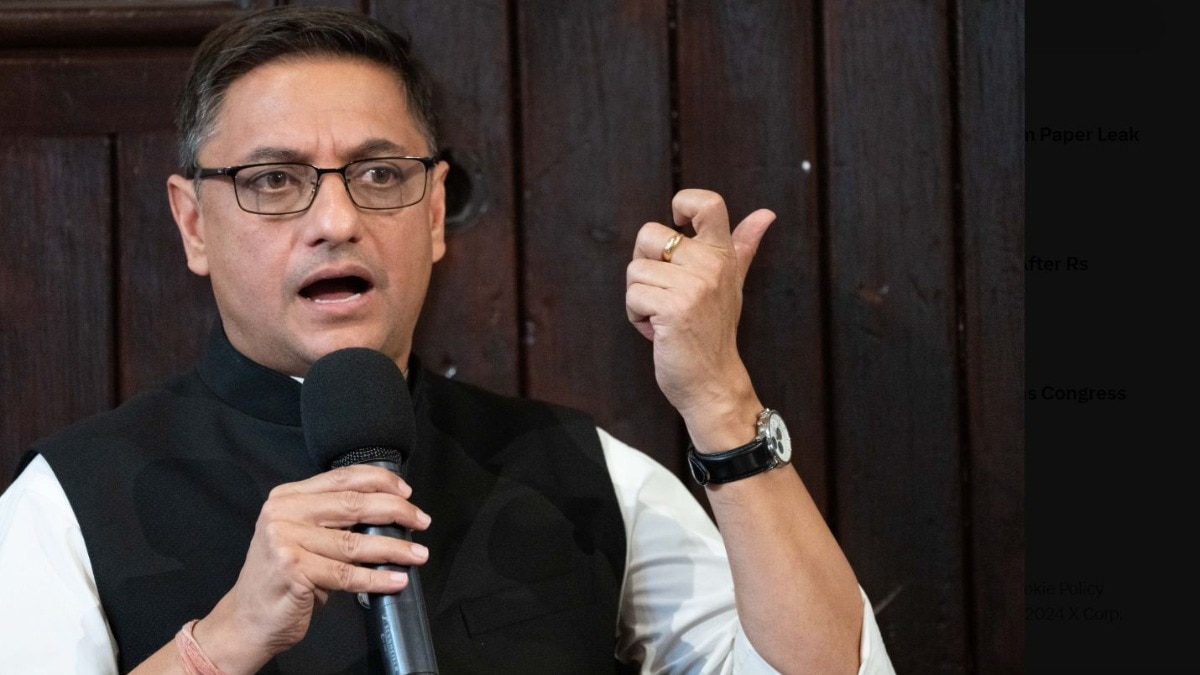Economist Sanjeev Sanyal wants the central government to allow foreign direct investment (FDI) from China, as was pitched by the Economic Survey 2023-24, but says that New Delhi’s security concerns are also real. “China is already India’s largest source of imports and somewhere we cannot wish them away because they are the cheapest source of many things that we want to do,” he said in an interview with ThePrint.
Sanyal said the point that the survey makes is a “good one”. The survey, which came out earlier this year, pitched for FDI from Beijing to boost local manufacturing and tap the export market. Currently, FDI from countries sharing land borders with India needs mandatory government approval in any sector.
The economist, who is a member of the Prime Minister’s Economic Advisory Council, said that even the US is unable to get rid of China and almost no country can do without them. “That’s the fact of life. And we already are trading. So the question is – if we are going to import these parts etc for, say the iPhone or whatever – why not allow them to manufacture in India, and why force them to remain in China or to invest in some other country from where we will import it…why not let them do it here?” he asked.
Sanyal said this is not an unusual situation and has happened in the past. China’s own industrialisation, he said, happened with investments from Japan, with whom they had fairly tricky relations. “If you think we have frictions between us and China, given the history of Japan and China – you can imagine how rocky that is. If we go all the way back, the industrialisation of Germany was done with British capital. The industrialisation of Japan was done with American capital.”
So, geopolitical rival countries with friction against each other have throughout history traded and received investment from them, he said. “So you can be both a collaborator and a competitor at the same time. This is the way the world works. The dramatic rise of China…and now becoming a cutting edge country has been driven by capital from Japan and the US.”
Endorsing the survey’s pitch, he said it was not unusual for countries to accept foreign capital. There is obviously certain areas where the government will have some concerns, he said. “You don’t want Huawei, for example, to run your telecomunication system…everyone knows concerns about them. You may not want Chinese companies to dominate our procurement system. But there are large areas where it is anyway pointless avoiding them and there are many areas they will bring talent.”
“They are at the cutting edge of technology in many areas. They will create jobs here and also provide capital. Because there are many Chinese entrepreneurs who want to leave China – why don’t we become a beneficiary of that process?” he said, but added that New Delhi’s security concerns are also real.
“I am of the view that we need to find that sensible balance. in the last few months, we have seen several electronic related companies being given approval even in the existing system. so even the existing system is speeding things up a bit,” he said.
The bilateral relations between India and China have strained since June 2020 when the Chinese military made a unilateral move along the border in Eastern Ladakh. Following these tensions, India restricted direct investment from China, and other countries sharing land borders. New Delhi also banned over 200 Chinese mobile apps such as Tiktok, Wechat, and Alibaba’s UC browser. It also rejected a major investment proposal from EV maker BYD.
However, the survey batted for direct investment from China which it said can boost India’s exports to the US, similar to how East Asian economies did in the past. “Choosing FDI as a strategy to benefit from the China plus one approach appears more advantageous than relying on trade,” the survey noted. “This is because China is India’s top import partner, and the trade deficit with China has been growing.”
As the US and Europe shift their immediate sourcing away from China, it is more effective to have Chinese companies invest in India and then export the products to these markets rather than importing from China, adding minimal value, and then re-exporting them, the survey said.


